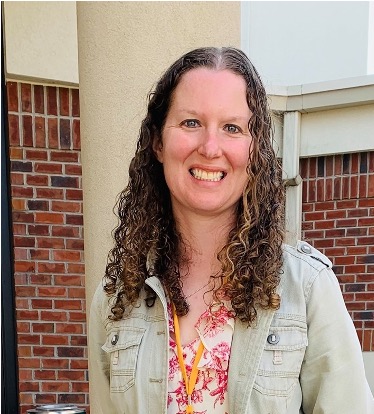Over medium roast coffee and green tea, we talked about life. She came to my church for the first time because I just happened to know her stepmom from the previous church at which I served, though that was two hours away. I learned her about her story, her work, and her friends in the recovery community. She saw God’s hand in all of them—and she wanted everyone to see Him too. After all, her deep relationships with those around her caused them to see transformation in her life. All she needed was words to share with those around her.
Her name wasn’t Lydia, but she was a Lydia.
On the Sabbath we went outside the city gate to the river, where we expected to find a place of prayer. We sat down and began to speak to the women who had gathered there. One of those listening was a woman from the city of Thyatira named Lydia, a dealer in purple cloth. She was a worshiper of God. The Lord opened her heart to respond to Paul’s message. When she and the members of her household were baptized, she invited us to her home. “If you consider me a believer in the Lord,” she said, “come and stay at my house.” And she persuaded us. –Acts 16:13-15
In the middle of Acts 16, we find this kind of whirlwind story about how Paul goes searching for a bunch of female God-fearers involved in a religious prayer meeting down by the river and then leads a woman named Lydia to the saving truth of Jesus Christ.
Upon entering Philippi, Paul had probably discovered the nonexistence of a synagogue, signifying the fact that there must be less than ten Jewish men in the town. He took this occurrence as an opportunity to seek out a group who would be a receptive audience to his message—Gentile adherents to the biblical faith who happened to be of the female persuasion.
We read that this interaction has explosive results beyond the prayer meeting, into Lydia’s whole household, and beyond. This gathering of women is a mighty spiritual force to be tapped; it’s because of this one woman and a fresh expression of church on the riverbank that the gospel entered Europe.
From Acts 16, we can learn a number of things about how women can play a key role in starting fresh expressions of church:
1. Women are well equipped to lead fresh expressions of church.
Because of her interactions with Paul, Lydia shared her newfound faith in Christ with her entire household, and all of them were baptized. She was a woman of action and influence whose gift of hospitality impacted her new friends. As a businesswoman, she was accepted by the people around her, and we may surmise that the gospel made inroads in the region as God used her marketplace skills. In the same way, women in our day are uniquely positioned in today’s marketplace, family, and neighborhood and are gifted in leadership—a perfect combination to start fresh expressions of church where they are.
Women are uniquely positioned & gifted in leadership—a perfect combo to start fresh expressions.
Tweet this.
2. Women have access to and involvement in many sub-groups of society.
Lydia was not only a member (leader?) of the women’s riverbank prayer group but most likely also part of the city’s textile dyer’s guild. She had relationships with different people than her male counterparts and was uniquely positioned within these relationships. Think of the different groups of people in your city, town, or community in which women have unique access or may be uniquely influential: moms groups, school groups, sports fields, the chamber of commerce, community organizations, etc.
3. Women value communication and relationship-building.
We’re told that even though there was no synagogue in Philippi, the women still gathered together. Lydia came to faith through words. She spent much of her time talking in social groups, including a prayer group that expressed interest in the God of the Jews. Her relationships were probably deeper both emotionally and spiritually than those of her male counterparts—which then would have allowed the gospel to spread more rapidly both in Philippi and, we can imagine, later in her home of Thyatira.
Without sounding stereotypical, I, as a woman, find that communication—as well as forming bonds—occurs quicker and more often around and among women than men. Studies show that women speak almost 3x’s more words per day (20,000) than men, making verbal communication and relationships more of a natural component of daily life. In the process of starting fresh expressions of church, relationships are key.
4. Women face fewer barriers to leadership in fresh expressions than in traditional religious settings.
In scripture, we find no women in leadership of the synagogue, yet numerous women with Gentile names are identified as leading, supporting, and working with new churches as they are planted. While the Jerusalem church was based on the model of the synagogue, these new communities knew of fewer restrictions on women as leaders and instead saw their gifts and evidence of the Holy Spirit.
As in Lydia’s case, Gentiles were more open to women being able to serve in religious functions. Today, the greatest opposition to gifted women serving in leadership comes from within the established church; those outside the church respond to the gospel, not to whether it is brought to them by a man or a woman.
Where I live in Northern Virginia, there are a lot of Lydias. There are women who are called to bring the church Jesus loves to where the people Jesus loves actually are—let it be out of a local restaurant, neighborhood, ballfield, or AA meeting. I trust that wherever you are, you have Lydias too—women who are connected to others in the community but also rooted in the community itself. Gals like Lydia show us that fresh expressions of church can be natural ways for women to share the new life of Christ with their friends, families, neighbors—and the world.
How have you seen women serve in important roles in fresh expressions of church? What’s your story?


